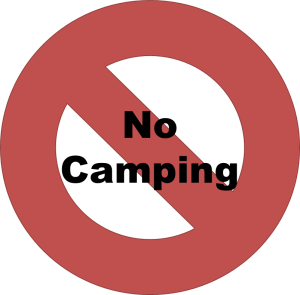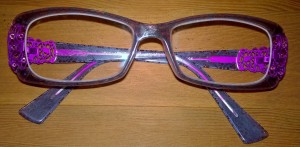Tag: savings
What we do for money
 I was talking to a friend the other day about how people believe they are limited in their career choices because of money. We both know many people in well-paid professions who aren’t happy with their jobs. They work exhausting hours or feel like their skills are being wasted, or they can’t stand their work environment. The options they consider include finding a similar job elsewhere or toughing it out and hoping things improve.
I was talking to a friend the other day about how people believe they are limited in their career choices because of money. We both know many people in well-paid professions who aren’t happy with their jobs. They work exhausting hours or feel like their skills are being wasted, or they can’t stand their work environment. The options they consider include finding a similar job elsewhere or toughing it out and hoping things improve.
There are more options, of course, but many people eliminate the ones that involve scaling down their lifestyles unless they are forced to. Expensive houses can be sold to live in smaller, more affordable homes. Luxury cars can be traded in for economical models. Resort vacations can be replaced by… camping. I’m laughing as I write this – I’m not much of a camper. But you know what I mean.
The point is, if you hate your job but love your paycheck, is it worth it? There’s no judgment if the answer is yes. It’s great to have money to spend on things that we enjoy and different people have different priorities.
I’m glad I got to experience some incredible vacations in the past, and my biggest expense is still my mortgage. But I spend less and save more in order to have the career that I want. And I wouldn’t trade it for a bigger house or a Mercedes or an annual trip to the Four Seasons Hualalai.
If You Want to Quit Your Job in 2015, Check These Items Off Your List by December 31st
If you’re planning to quit your job in 2015, there are multiple things you can do before the end of the year to be better prepared.
Use your healthcare benefits. This is especially important if you’ve met your deductible for 2014, or are getting close. If you move to a new employer, your healthcare benefits may have higher deductibles or lower co-pays, or exclude the practitioners that you currently see.
Don’t forget the optometrist! Even if you have never worn glasses or contacts before, if your benefits include an eye exam, it is worth looking into (ha!). Or, if you have been wearing the same lenses for a long time, your vision might have changed. Many eye care benefits allow for one set of prescription glasses or contacts each calendar year. If you get new glasses now, you could also get prescription sunglasses or contacts in January.
My vision constantly gets better or worse. When I switched to private insurance, I no longer had optometrist benefits. Fortunately when I had benefits in the past, I got new glasses each year as my prescription improved or worsened, so now I can rotate through them as my sight changes.
Get your charitable donations matched. If your company has a charitable gift-matching program, take advantage of it by making your donations now.
If you can afford it, max out your employer-sponsored retirement saving plan. Got a 401(k), 403(b), 503(b), or another annualized retirement saving plan that your company matches? Most plans start over on January 1st. If you aren’t able to contribute the maximum limit, can you contribute enough to receive your employer’s highest matching amount? This is part of your earned compensation. Don’t leave it behind when you go.
If you’re trying to save money, consider taking less vacation time this holiday season so that you can cash it out when you quit. If you work for a company that is slow during the holidays, this can be a great time to be on the job anyway. It will be quieter and calmer, and you can work on the projects that are most important for you to accomplish before you leave. You can also use the extra privacy to print paystubs, retirement plan or stock details, and your past performance reviews.
Enjoy your holiday bonuses. If your employer gives cash bonuses or gifts in December, take an extra moment to savor them. To everyone else they are end-of-year extras. For you, they are your parting gifts.
Savings = Options
One of the most common questions I get when people hear that I quit my corporate job is about how I was able to do it financially. As someone put it delicately the other day, “Isn’t it uncomfortable not having an income?” Well, yes it’s uncomfortable! Seeing all of the money go out of the checking account instead of coming in doesn’t generate feelings of comfort. I take deep breaths and remind myself that this was the plan. This is what I saved for.
Well, to be accurate, I saved for this scenario; the possibility that I would be living off of my savings for an extended period of time. When I first decided to leave my job, nearly a year before I actually left, I planned to start a business. I did research, took training, talked to people in my chosen field, and had a marketing strategy lined up. But as I neared my exit date a different business opportunity came up that I was even more excited about and I turned my attention in that direction. And yet another idea was born during the month I spent at a summer writing program – I formed a solid outline of a book I wanted to write.
By August the new plan was to work on the startup and write my book, and ideally generate income from both starting January 2014. Soon it became clear that the startup and the book were on the slow track and as I learned more about both industries, I realized that neither one were going to provide a living wage anytime soon, if ever. But I was committed. I had a solid start to a book and an interesting new business and wanted to see how much I could do with both of them. Plan V4 was to treat these efforts like full-time jobs and then amp up consulting in 2014. Thankfully I had saved enough money to make this option possible.
I’ve always been a saver but once I made up my mind that I would leave my job, I doubled-down. I got rid of my home phone and cut cable down to the cheapest plan possible. I would have scrapped cable TV altogether but my internet bill was less expensive bundled with TV than without. I stopped buying things. I didn’t shop for clothes and if there was something I saw that I thought I’d like to have, like a kitchen gadget, I just didn’t buy it. I became fond of the saying, “Use it up, wear it out, make it do, or do without.” My one remaining consumer habit was cosmetics. I have a “thing” for shopping at Sephora and long after I stopped buying other stuff I didn’t need, I was still purchasing lipstick and eyeliner. Eventually even that fell away. When I passed up the holiday coupon for $25 off a purchase of $50 or more, I knew I’d transcended.
Alison Green of the blog www.askamanager.org wrote about the choices that savings provides in a 2011 post titled “3 Things I Learned by Quitting my Job in a Recession”. She wrote, “I wanted to quit my job and work for myself for a lot of reasons. I was able to quit my job and work for myself for this reason: savings. Having savings lets you act from strength, not desperation. That has huge ramifications for the decisions you’re able to make and, therefore, for your quality of life.”
If you are considering a career change, maybe this New Year is the right time to make a resolution to save extra money so that you’ll have more options. A great place to start is by finding out how much you really spend, which is probably more than you think. A fellow career-changer, Jennifer Lesher, told me about www.mint.com. It’s the best budgeting tool I’ve seen so far. It sucks your online financial data into a dashboard where you can see your total spending by category (household, auto, insurance, food, etc.).
While it doesn’t feel comfortable to make a career change that involves financial risk, it is liberating to be able to choose. I’m happy with my choice.


Recent Comments